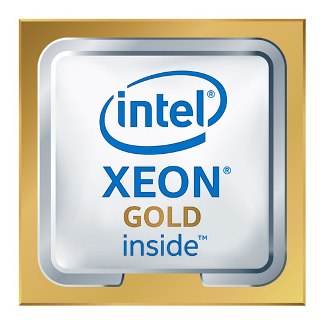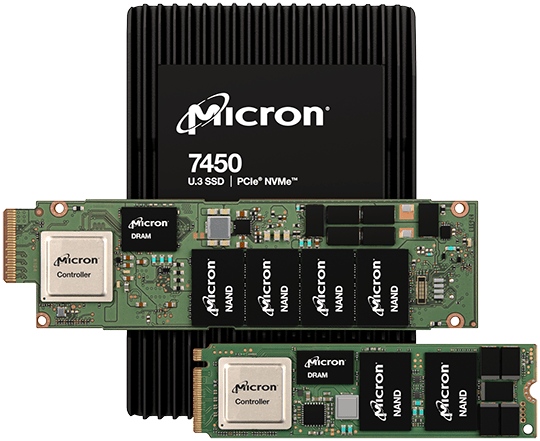OpenMetal’s XL v3.0 bare metal dedicated server with 4th Gen Intel Xeon Gold processor has the following specifications out of the box:
- Processor: 2x Intel Gold Xeon 6430
- Storage: 4X6.4TB Micron 7450 MAX NVMe
- RAM: 1TB DDR5
- Network: 2X10Gbit
- Egress: 6gbps
The XL v3.0 can be purchased as bare metal servers or as part of an on-demand hyper-converged three server hosted private cloud with OpenStack & Ceph.
Bare Metal Dedicated Server powered by 4th Gen Dual Intel Xeon Gold 6430 Processor
The Intel Xeon Gold 6430 Processor is part of the 4th Generation Intel Xeon Scalable Processors collection. For more detailed information, you can visit the Intel website.
Overview
The Intel Xeon Gold 6430 processor, part of the 4th Generation Intel Xeon Scalable Processors, features 32 cores, 64 threads, and a base frequency of 2.10 GHz that can turbo up to 3.40 GHz.
It has a 60 MB cache, supports up to 4 TB of DDR5 memory, and comes with 80 PCIe 5.0 lanes for expansion. Its thermal design power (TDP) is rated at 270W.

Security and Reliability
The Intel Xeon Gold 6430 processor emphasizes advanced security and reliability features.
It incorporates Intel Software Guard Extensions (SGX) for protected code execution, Intel Total Memory Encryption (TME) for full memory encryption, and Intel Crypto Acceleration to enhance cryptographic performance.
Additionally, it supports Intel Platform Firmware Resilience (PFR) for firmware protection and Intel Trusted Execution Technology (TXT) to ensure a secure system launch.
These features collectively enhance data and system security, making it suitable for environments where data protection is paramount.
Differences and Similarities between Intel Xeon Gold’s 6430 and 6338 Processor
One of the key differences between the OpenMetal XL 3.0 Dedicated Server and OpenMetal XL 2.1 Dedicated Server is that the 3.0 has Dual Intel Xeon Gold 6430 Processor and the 2.1 has Dual Intel Xeon Gold 6338 Processor.
The Intel Xeon Gold 6430 and the Intel Xeon Gold 6338 processors are both high-end CPUs designed for server and workstation use, offering substantial computational power. When comparing these two, there are several key differences and similarities to consider:
- Core Count and Threads: Both processors have 32 cores and 64 threads, providing ample parallel computing power for multitasking and server workloads.
- Base and Turbo Frequency: The Xeon Gold 6430 operates at a base frequency of 2.10 GHz with a turbo boost up to 3.40 GHz, while the Xeon Gold 6338 has a slightly lower base frequency of 2.00 GHz but can boost up to 3.2 GHz. This makes the 6430 slightly faster in terms of raw clock speed.
- Memory Support: The 6430 supports DDR5-4400 RAM up to 4 TB, while the 6338 supports DDR4-3200 RAM up to 6 TB, indicating a trade-off between speed and capacity. The newer DDR5 support in the 6430 offers faster memory speeds but currently at a lower maximum capacity.
- PCIe Support: The Xeon Gold 6430 supports PCIe 5.0 with 80 lanes, offering higher bandwidth and more lanes compared to the 6338, which supports PCIe 4.0 with 64 lanes. This makes the 6430 more suited for systems with a large number of high-speed peripherals.
- TDP and Energy Efficiency: The Thermal Design Power (TDP) of the 6430 is higher at 270W compared to 205W for the 6338, suggesting the 6430 may require more robust cooling solutions but offers higher performance
Overall, the Xeon Gold 6430 offers improvements in memory speed, PCIe lanes, and processing power, making it a powerful choice for demanding server environments. However, the Xeon Gold 6338 remains a strong contender, especially for those prioritizing a balance between cost and performance or needing higher memory capacity with DDR4 support.
Go to Bare Metal Product Page
- Advanced Technology: Utilizes Micron’s state-of-the-art, 176-layer NAND technology.
- Performance: Offers industry-leading performance due to the combination of high layer count NAND and PCIe Gen4.
- Low Latency: Consistently delivers latency as low as 2ms for 99.9999% QoS.
- Versatility: Available in a broad range of PCIe Gen4 SSD form factors, catering to various platform functions.
- Capacity Range: Comes in capacities from 400GB to 15.36TB.
OCP NVMe SSD 2.0 Support: Enhances data center management and resolves common issues effectively. - Security Features: Includes next-generation security features for data protection.

For a comprehensive summary and more details, you can visit the Micron 7450 NVMe SSD page here.
OpenMetal chooses Micron 7450 MAX and PRO SSD with NVMe
OpenMetal is adding the option to select the Pro version of the Micron 7450 Max. As you can see below the key difference is Random Write and Random Read/Write IOPS. The Max version of the 7450 has reserve space pre-calculated by the manufacture to deal with the write amplification inherent in the modern NVMe SSDs. This means there is reserve/hidden space in the Micron 7450 MAX that the drive uses to avoid having to write over existing usable space when doing its native garbage collection process. In addition, there is reserved space for handling when sectors are worn out thus allowing for the 3DWPD spec versus the 1DWPD of the Pro.
| NVMe Drive >> | Micron 7450 PRO: U.3 | Micron 7450 MAX: U.3 |
|---|---|---|
| Capacities | 7.68TB (Available: 960GB – 15.36TB TLC) | 6.4TB (Available: 400GB – 12.8TB TLC) |
| Wear | 1DWPD | 3DWPD |
| PCIe Generation | Gen 4 | Gen 4 |
| Performance (upto) | ||
Sequential Reads (MB/s) | 6,800 | 6,800 |
| Sequential Writes (MB/s) | 5,600 | 5,600 |
| Random Reads (IOPS) | 1,000,000 | 1,000,000 |
| Random Writes (IOPS) | 215,000 | 400,000 |
| 70/30 Rand.Read/Write (IOPS) | 415,000 | 645,000 |
The Micron 7450 SSD comes equipped with a comprehensive suite of security enhancements refined through generations of Micron’s data center SSDs, tailored to safeguard against the evolving threats in today’s environment where data and applications are increasingly virtualized, cloud-based, or containerized.
- This includes a Secure Execution Environment featuring dedicated and isolated hardware for security tasks, ensuring physical separation as a defense mechanism against cyber-attacks. It offers flexibility in security deployment with both Self-Encrypting Drive (SED) and non-SED options, catering to diverse security needs.
- Adherence to industry security standards is evident with support for TCG Opal 2.01 and IEEE 1667, along with FIPS 140-3 Level 2 certification, making it easier to integrate into existing security frameworks.
- The SSD’s Asymmetric Roots of Trust allows for the easy revocation of authenticated root keys stored in immutable ROM, accommodating changing security requirements. Its robust asymmetric key support leverages NIST-approved algorithms and supports 208-bit/3072-bit RSA keys, ensuring strong encryption.
- Furthermore, RSA Delegation Key Support ensures that clients maintain control over their RSA keys, keeping ownership within client boundaries. Secure Boot and Key-Based Firmware Update mechanisms protect the integrity of firmware against malware by verifying firmware integrity during system operation and prior to updates, respectively.
- Lastly, Key-Based Privileged Access secures against unauthorized changes, enforcing public key-based authorization for accessing privileged SSD functions.
Go to Bare Metal Product Page
Bare Metal Dedicated Server with 1TB RAM DDR5
The evolution of RAM technology from DDR3 to DDR4, and now to DDR5, brings significant improvements in performance, efficiency, and capabilities.
DDR5 Compared to DDR4
- Higher Speed and Bandwidth: DDR5 offers significantly higher data transfer rates and bandwidth compared to DDR4. While DDR4 speeds typically top out around 3200 MT/s to 3600 MT/s in mainstream applications (with overclocking options going higher), DDR5 starts at 4800 MT/s and is expected to reach or exceed 8400 MT/s as the technology matures. This increase in speed enhances system performance, particularly in data-intensive applications.
- Improved Efficiency: DDR5 introduces more efficient power management features, including a reduction in operating voltage from 1.2V (DDR4) to around 1.1V. This decrease, along with other power-saving features integrated into DDR5, contributes to lower overall power consumption, which is especially beneficial in mobile devices and energy-conscious environments.
- Increased Capacity: DDR5 supports higher capacity modules thanks to advancements in manufacturing and chip density technologies. While DDR4 modules are commonly found in up to 32GB capacities for consumer use, DDR5 modules are expected to reach significantly higher capacities, making them ideal for data-heavy applications and advanced computing environments.
- Enhanced Reliability: With the introduction of on-die ECC (Error Correction Code) and other error-checking mechanisms, DDR5 improves overall data reliability. This feature helps to automatically detect and correct internal data corruption, which is crucial for mission-critical systems and applications that require high levels of data integrity.
Go to Bare Metal Product Page
Interested in the OpenMetal IaaS Platform?
Hosted Private Cloud
Day 2 ready. No licensing costs. Delivered in 45 seconds. Powered by enterprise open source tech.
Bare Metal Servers
High end bare metal server hosting for virtualization, big data, streaming, and much more.
Consult with Our Team
Meet our experts to get a deeper assessment and discuss your unique IaaS requirements.




































